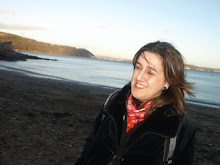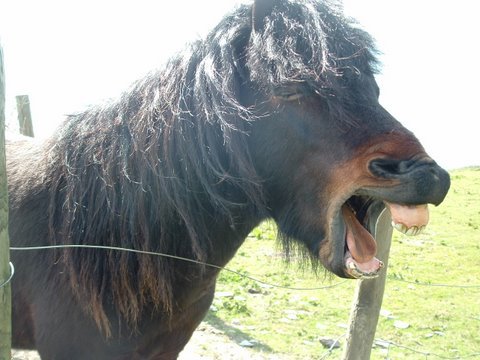
Sarah Fordham brushes the dust from the work of subversive wartime actor to reveal an approach to creativity worthy of revival in today's 'cultural crisis'
I recently got to open a book that I had wanted to mine the contents of for the best part of 20 years. It was in the 6th floor of the stacks of Columbus University in NYC. I had to work my way down the rows of dusty shelving, turning lights on as I went, until I got to the right location. And there it was - a white cover with golden lettering – The Collected Plays and Writings on Theater by Karol Wojtyla. I took the book down to the ground floor, made some photocopies, and went on my way rejoicing.
Karol Wojtyla went on to become Pope John Paul 11. It is well known that he wrote poetry and plays, and although his involvement in theatre pre-papacy is well documented, it's not so much talked about. I came across a volume of his poetry as a teenager, and nearly missed the treasure within because of the photo of him waving from his Popemobile put me off delving inside. I am so glad that I did - I had never read poetry like it and from then on I became interested in his artistic work, collecting newspaper cuttings and articles whenever they appeared. But I had not been able to find the only book, as far as I know, that contains his thoughts, expressed in his own words, about the genre that he made a significant contribution to known as Rhapsodic Theatre.
SUBVERSIVE CREATIVITY
It was during the Second World War that Karol Wojtyla co-founded, with his teacher and mentor Mieczyslaw Kotlarczyk, the Rhapsodic Theatre - sometimes described as 'an underground cultural resistance movement' because of the clandestine performances they put on house-to-house during the Nazi occupation of Poland. Wojtyla reflects on these experiences in his book Gift and Mystery. He wrote, 'it was essential to keep these theatrical get-togethers secret; otherwise we risked serious punishment from the occupying forces, even deportation to the concentration camps'.
However, Wojtyla came to realise that although he and Kotlarczyk considered 'the spoken word and the theatre to be my calling, ...Our Lord Jesus thought it was the priesthood, and somehow we came to accept this.' In Gift and Mystery he reminisced, 'I must admit that that whole experience of the theatre left a deep impression on me ...'. It was the experience of the war that turned him towards the priesthood, though he did retain a keen interest and involvement in the arts, often writing under various pen names. After the war, as a priest, he supported the Rhapsodic Theatre group and was also its critic, publishing reviews of its performances. Within his literary work, he wrote a number of dramas, the best-known of which are Our God's Brother and The Jeweller's Shop, which was adapted and made into a film in 1988, starring Burt Lancaster, an interpretation that he was reportedly very happy with.
'KAROL WAS THE MOST TALENTED OF US ALL'
Halina Kwiatkowska, a friend of Wojtyla from his school days who went on to a 40 year career on the stage, recalls that she was absolutely sure he would become not just an actor, but an excellent actor. 'He had a different approach to the theatre, as different as he was different from us ... Every actor tries to enrich the person he plays. With him it was the opposite. He lived out the person he played in a very ascetic way in order to translate its real depth.' Wojtyla protested in vain when the communist authorities closed Rhapsodic Theatre. Danuta Michalowska, another actress associated with the movement, said 'for us it was a big loss, but no-one dared stand in opposition.' She also reflected that, 'As a poet he probably would not have had an amazing career. But as an actor he would have certainly reached the highest level. Karol was the most talented of us all.'
A MODERN MESSAGE
In these days of Tracy Emin's bed and Damian Hurst's diamond encrusted skull, I would encourage any aspiring or practising artist to read Pope John Paul 11 Letter to Artists (found on the Vatican website). Even the not religiously minded may find themselves moved by the sincerity with which he speaks to creative artists of all disciplines – he clearly desired to encourage craftsmen and women whose activity he considered to mirror the image of the Creator, as people uniquely gifted to positively 'form the spirit of society and of peoples'.
I can see why Wojtyla's ideas on art are not in vogue, informed as they are by a philosophy he was very influenced by known as Personalism. This asserts that the real is the personal (i.e. that the basic features of man's personality form the pattern of all reality). In the theistic form that Personalism has often assumed, and certainly in Wojtyla's case, it sometimes becomes specifically Christian, holding that not merely the person but the highest individual instance of personhood—Jesus Christ—is the pattern. So for Wojtyla the artist is an important as the work of art they produce, and it is the very thought, intention and deepest desire of the artist that communicates, or speaks through, the work of art and imbues it with value and significance.
THE PERSONAL VERSUS THE PRODUCT
This idea runs completely counter to those of Benedetto Croce, a philosopher who deeply influenced aesthetic thought in the 20th century. Drawing on Hegel, he postulated that art can only be considered to be intuition which exist before it is apprehended by an individual artist, and therefore not governed by any other part of human existence. In his Aesthetica in Nuce he said that a work of art is a creation, not a reflection, and a monument, not a document. The intentional world of the poet is one thing and poetry is another. He said, 'what matters is not what the poet proposes or believes to make, but only what he has actually made.'
And what of the Rhapsodic method? At its heart is the belief that the fundamental element in dramatic art is the living human word. Wojtyla says in his essay Drama of Word and Gesture, that this word 'is also the nucleus of drama, a leaven through which human deeds pass, and from which they derive their proper dynamics.' Human thought therefore becomes the centre of action, the important consequence of this being that action and gestures are slowed down, 'so freeing all participants from the activism that overwhelms his inner, spiritual nature instead of developing it.'
Rhadsophic Theatre came into being in 1941, was practised in secret during the war and was twice suppressed under communism in 1953 and 1956. It was finally abolished by the authorities in 1967 and has never been re-established. Woytyla wrote in his forward to Mieczyslaw Kotlarczyk's book The Art of the Living Word, 'that though Rhapsodic Theatre has ceased to exist, the idea of the theatre of the living word implanted by Mieczyslaw Kotlarczyk has entered under various guises into theatrical practice all over Poland.' From 1941-1944 Wojtyla took part in seven productions, 22 performances and over hundred rehearsals all in hiding. He was ordained as a priest in 1946. He says in Gift and Mystery, 'in the face of the spread of evil, the meaning of the priesthood became much clearer to me.'
I think we are enough in cultural crisis in the Western world to want to rediscover some beauty, truth and goodness - the three pillars on which Wojtyla's philosophy of the arts is built. The writings I photocopied outline the Rhapsodic method in a remarkable economy of words, and if embraced, would open up entirely new bodies of work, like novels, poetry, the works of philosophers, in fact any text that communicates ideas, for theatrical production. Wojtyla may have chosen a path that he felt to be a more direct way of developing spiritual nature in himself and others, but the way of art can, as Wojtyla understood it, fulfil the same function. As Danuta Michalowska, the actress friend of Wojtyla expressed it, 'for him to serve God and art, it was all the same.'
I imagine the master dramatist Shakespeare would have agreed with Wojtyla that art is a deeply personal reflection and document, and not as Croce expressed it, an impersonal creation and monument. Shakespeare formulated theatre's mission so well when he said its end 'both at the first and now, was and is, to hold, as 'twere the mirror up to nature; to show virtue her own feature, scorn her own image, and the very age and body of time his form and pressure.'

